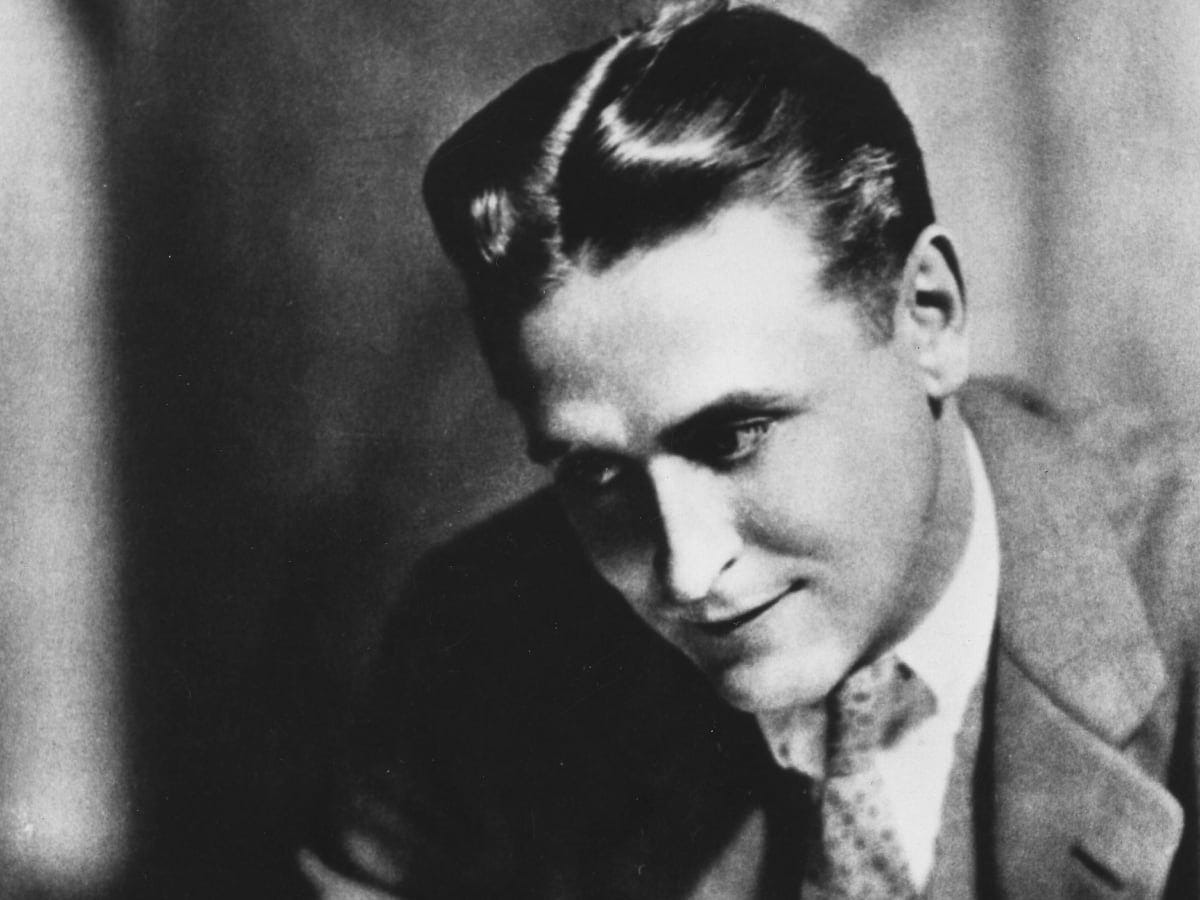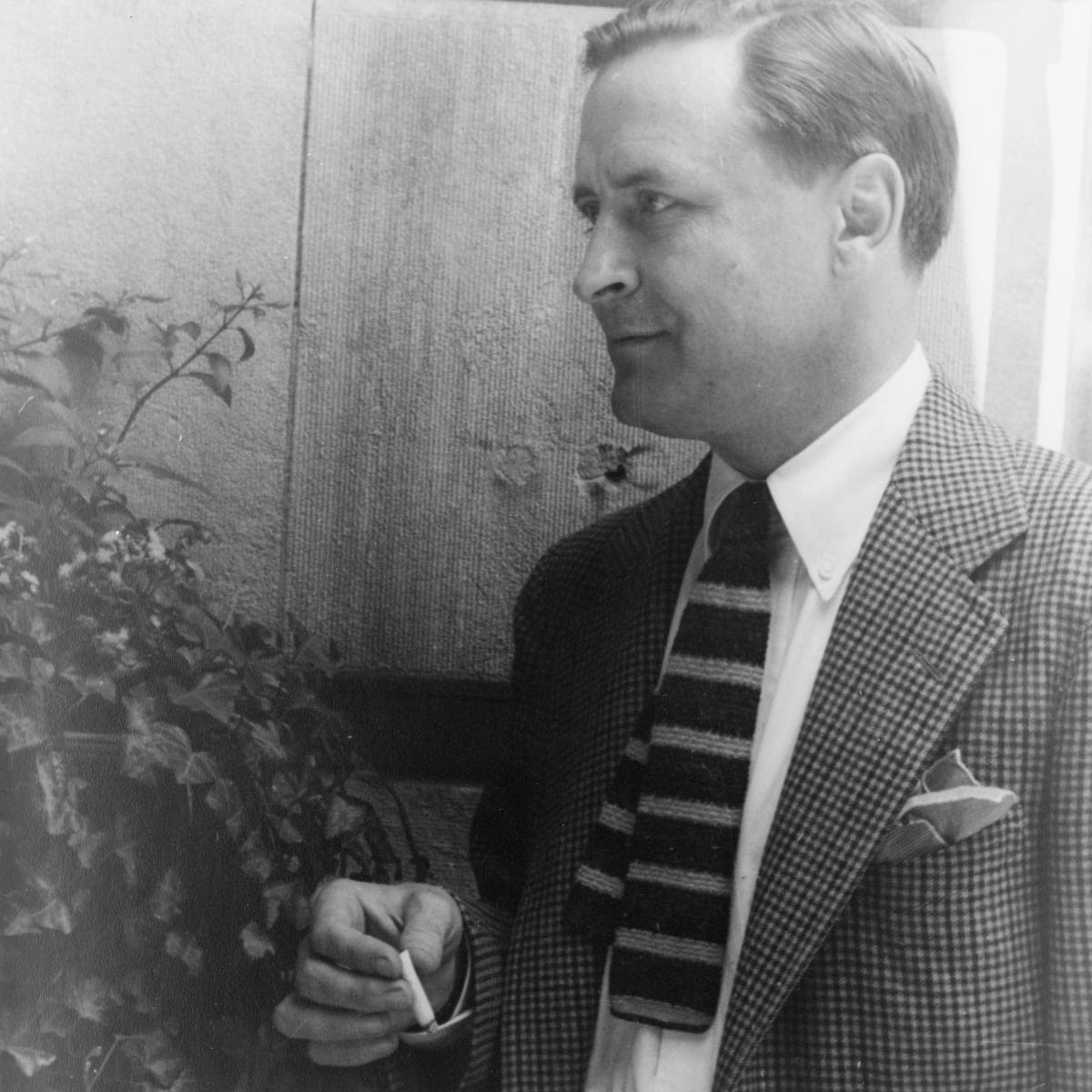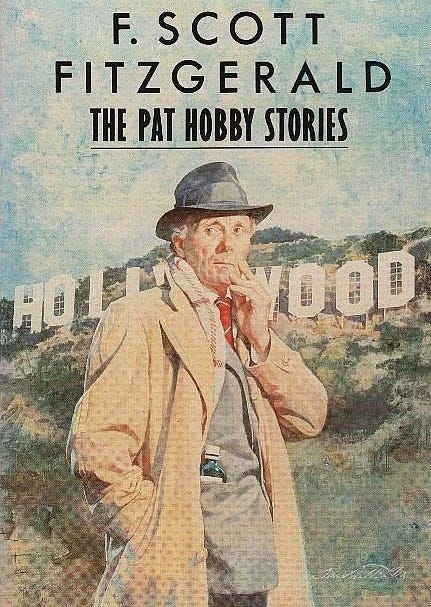Tales of F. Scott Fitzgerald and Pat Hobby in Hollywood
F. Scott Fitzgerald, he of "The Great Gatsby," was all but forgotten late in his life. He spent his final years as a screenwriter in Hollywood, and wrote short stories about it.
F. Scott Fitzgerald died of a heart-attack in December 1940 in Hollywood. He was forty-four years old. His career, his fame, had been stellar early in life. The roaring twenties were his time and, to this day, his name is near synonymous with the Jazz Age. He finished four novels and over one hundred and sixty short stories. It was the first three novels, This Side of Paradise (1920, The Beautiful and Damned (1922) and The Great Gatsby (1925) that gave him fame and money. You see the mention of the years - 1920, 1922 and 1925 - a tight frame, a massive spike in popularity, truly stellar - it went downhill from there.
Just to give you a sense: When he moved to Hollywood to work as a screenwriter in 1937 (between then and his successful novels lay a life excesses, of relationships, of travels, jealousy, ill mental health, alcoholism and much, much more), he would, in occasional drunken stupors, address strangers, saying, “I’m F. Scott Fitzgerald. You’ve read my books. You’ve read The Great Gatsby, haven’t you? Remember?” When realizing that people had never heard of The Great Gatsby, he searched for it in several bookstores - and learned that they had stopped carrying his works. He truly was largely forgotten at that point.
He tried being sober for the last three years of his life, but occasionally lapsed. He made a good living, still, but screenwriting wasn’t his format - and apparently he often went expansively ‘literary’ on his scripts. According to this New Yorker article (very insightful, by the way), he worked at MGM for eighteen months “during which time he worked on five scripts, wrote another more or less from scratch, and generated a pile of notes and memos. And if his work was altered or rejected, he’d follow up with bitter, self-justifying letters.”
If you’ve read any of Fitzgerald’s work, you’ll instantly see that the way of the screenplay definitely isn’t his natural way. There’s nothing wrong with being a literary genius - but it doesn’t necessarily help in Hollywood, that’s for sure. Billy Wilder supposedly liked Fitzgerald and likened his being there to “a great sculptor who is hired to do a plumbing job - with no idea how to connect the pipes and make the water flow.” Guess that makes us screenwriters the plumbers - works for me!
The above-linked New Yorker article sums it up this: “The difficulty in evaluating Fitzgerald as a screenwriter lies in the problematic nature of screenwriting itself. While really incompetent scripts are easy to spot, even a well-wrought screenplay is a poor predictor of either artistic or box-office success. A script is simply a blueprint, whose potential to be mediocre or brilliant lies outside the screenwriter’s purview.”
Well, from all I’ve read, he was a professional, for sure. He worked hard at learning the ways of the screenplay, but he certainly did make it supremely difficult for himself (and those around him), by still seeing himself as the literary man who had crafted those famous novels. I have a feeling that, if you want to be successful as both a novelist and a screenwriter, you need to be able to compartmentalize quite dramatically, shutting off that one side of you and letting the other take the rein.
He was active, he worked on films - he was employed - but never achieved the movie fame of other literary figures who ‘served their time’ in Hollywood - like Faulkner, Hemingway, Steinbeck, Chandler and Bradbury, to name a few. Here’s the thing, though - and I’m finally getting to what I’ve actually wanted to share! - none of the others took the time to write seventeen short stories about the life of a down-and-out screenwriter in Hollywood. Enter, Pat Hobby!
Pat Hobby is a screenwriter who’s seen better days - but is pretty much a hack and a boozer and struggling to make a bit of money by any scheme possible. He has a good, dry sense of humor and, who’s kidding who, there are obvious parallels between Hobby and the man who created him. The seventeen stories are, one and all, quick reads that give you both a sense of Hollywood history with a comedic self-deprecating hero who battles executives, secretaries, writers, tourists, Orson Welles, directors and actors. When you read the stories, read them for what they are - they are no literary masterpieces, and neither were they intended to be. They’re lighthearted fare - and still, they give a glimpse of the man behind the man who was forgotten then, only to become a star on the firmament of literary greats in our time.
Who doesn’t love a bit of public domain, right? The works of F. Scott Fitzgerald have finally made it into that free realm - and so you can find the full seventeen stories online as part of the wonderful Gutenberg library. Below the direct links. Whenever you have a bit of spare time - go spend it with Pat Hobby in old Hollywood - and know that you’ll also be in the company of Fitz himself. Enjoy!










